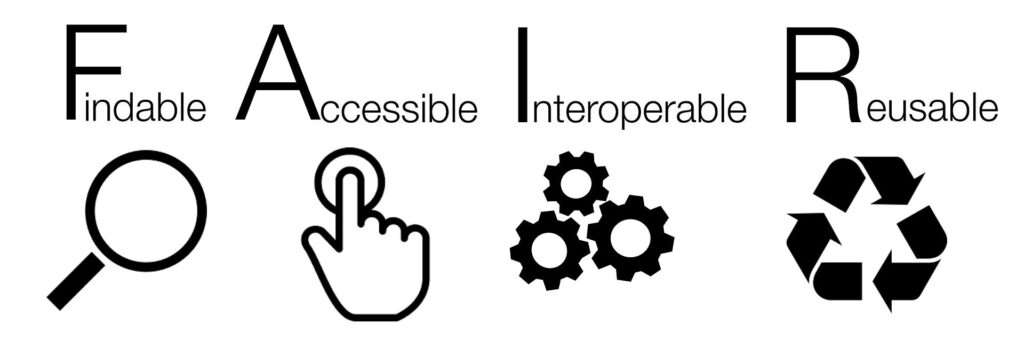
In order to make the data produced by the Center for GWAS in Outbred Rats (C-GORD) more FAIR (Findable, Accessible, Interoperable, and Reusable; Wilkinson et al., 2016), we are making several recommendations. The FAIR principles emphasize the use of unique identifiers to help locate, access, link and disambiguate data, adhering to data standards and providing enough metadata and provenance to make your data understandable to others. Click here for more information about FAIR and why it is important.
- Authors should include their ORCIDs for all papers and datasets. ORCID IDs provide a unique number to identify each author, they are especially helpful for authors with common surnames (e.g. Smith, Garcia, Lee, Kim, Nguyen, Chen, etc). We strongly recommend that each author obtain an ORCID and provide them to journals when submitting papers and when contributing to a dataset . ORCIDs are free and easy to obtain from : https://orcid.org.
- DOIs: The paper as well as individual datasets should all have a Digital Object Identifier. (For example, Chen 2021 has a DOI of https://doi.org/10.1101/2021.10.18.464872 , and a DOI for its dataset ttps://doi.org/10.48810/P44W2). C-GORD is provisioning DOIs for our data. If you are using C-GORD data in your publication, please contact us to obtain a DOI. This process takes some time, so please contact us when you are submitting your manuscript so we can start the process.
- RRIDs: In order to promote research resource identification, discovery, and reuse, Antibodies, Model Organisms, and Tools (software, databases, services) should all have RRIDs. (As seen here on the Chen paper). RRIDs can be found here https://scicrunch.org/resources
- Protocols: A detailed experimental protocol is an important component of making data FAIR. By sharing methods on C-GORD’s protocols group on Protocols.io, (https://www.protocols.io/workspaces/cgord/publications), we make sure that knowledge stays with the team, even if a scientist leaves. It also helps to keep the protocols up-to-date and make sure everyone is using the most recent version.You can also publish your protocol using a DOI to ensure that you can reference it within papers and datasets.l For more information visit https://www.protocols.io/
More information can be found on the FDI lab page https://www.fdilab.org/
